Leeds United F.C. is a professional football club based in Leeds, West Yorkshire, England. They currently compete in the Premier League, the highest tier of English football.
1904: Leeds City formed
In 1904, Leeds United's predecessor, Leeds City, was formed.
1905: Leeds City elected to League membership
In 1905, Leeds City was elected to League membership.
October 1919: Leeds United Formed and Voted into Midland League
In October 1919, Leeds United was formed at Salem Chapel and received an invitation to enter the Midland League, being voted into it on October 31, 1919, taking the place vacated by Leeds City Reserves.
February 1920: Arthur Fairclough Appointed Manager
In February 1920, Arthur Fairclough became the manager of Leeds United, replacing Dick Ray. Huddersfield Town chairman Hilton Crowther loaned Leeds United £35,000.
May 1920: Leeds United elected to the Football League
On May 31, 1920, Leeds United were elected to the Football League.
1923: Leeds United won promotion to the First Division
In 1923, Leeds United won the Second Division title and with it promotion to the First Division.
1926: Leeds United relegated to Second Division
In 1926, Leeds United were relegated to the Second Division.
March 1935: Dick Ray Resigns, Billy Hampson Appointed
On March 5, 1935, Dick Ray resigned after 8 years as manager. Billy Hampson was then appointed manager.
1946: Leeds United Relegated
In 1946, Leeds United were relegated again, with the worst league record in their history.
April 1947: Billy Hampson Resigned, Willis Edwards Appointed
In April 1947, after Leeds United were relegated, Billy Hampson resigned and was replaced by Willis Edwards.
April 1948: Willis Edwards Moved to Assistant Manager, Frank Buckley Appointed
In April 1948, Willis Edwards was moved to assistant manager after only one year as manager. He was replaced by Frank Buckley. Sam Bolton also replaced Ernest Pullan as chairman of Leeds United.
1955: Leeds United win promotion to First Division
In 1955, Leeds United won promotion to the First Division, inspired by John Charles.
November 1957: Gerry Francis Becomes First Black Player
On November 30, 1957, Gerry Francis became Leeds' first black player.
1959: Leeds United relegated to Second Division
In 1959, Leeds United were relegated to the Second Division.
March 1961: Don Revie Appointed Manager
In March 1961, Don Revie was appointed as manager of Leeds United.
1963: Leeds United win promotion to First Division
In 1963, Leeds United won promotion to the First Division.
1964: Leeds United Finished Second
In 1964, Leeds United finished second to rivals Manchester United on goal average.
1966: Leeds United Finished Second and Inter-Cities Fairs Cup Semi-Final
In 1966, Leeds United again finished second in the league and reached the semi-finals of the Inter-Cities Fairs Cup, losing on aggregate to Real Zaragoza.
1967: Leeds United Buys Mick Jones
In 1967, Leeds United bought Sheffield United centre-forward Mick Jones for £100,000.
1968: Leeds United won League Cup
In 1968, Leeds United won the League Cup, with Terry Cooper scoring the only goal in a 1–0 victory against Arsenal in the final.
April 1969: Leeds United Secured the Title
In April 1969, Leeds secured the title with a 0–0 draw with Liverpool at Anfield. Leeds set a number of records including most points (67), most wins (27), fewest defeats (2), and most home points (39).
1969: Leeds United reinforced their front line
In 1969, Leeds United reinforced their front line breaking the British transfer record by signing Allan Clarke from Leicester City for £165,000.
1970: Leeds United finished second in the league to Everton
In 1970, Leeds United targeted the treble and came close to achieving this, only to fail on all three fronts in a congested close season, finishing second in the league to Everton, losing the 1970 FA Cup final to Chelsea (after a replay), and exiting the European Cup with a semi-final defeat to Celtic.
1971: Leeds United and Arsenal challenged for the title
In 1971, Leeds and Arsenal both challenged for the title that season, though it would be Arsenal who would claim the league title, finishing one point ahead of Leeds after the latter lost to West Bromwich Albion following a controversial "offside" goal. Leeds were also knocked out of the FA Cup by Fourth Division side Colchester United.
1972: Leeds United Came Close to a Treble
In 1972, Leeds United again came close to a treble, but they finished third in the league, lost the 1973 FA Cup final to Second Division Sunderland 1–0 against all expectations, and reached the final of the European Cup Winners' Cup against Italian club AC Milan at the Kaftanzoglio Stadium, where they were beaten 1–0 following some controversial refereeing by Christos Michas who was later banned by UEFA for 'fixing' other matches.
1972: Leeds United Reached FA Cup Final
In 1972, Leeds again finished as runners-up in the league, but did reach the 1972 FA Cup final, lifting the trophy after a 1–0 win over Arsenal in the final.
1973: Brian Clough Appointed as Manager
In 1973, Brian Clough was appointed as Revie's successor. This was a surprise appointment, as Clough had been an outspoken critic of Revie and the team's tactics.
1973: Leeds won the title
In 1973, Leeds United won the title for the second time with a five-point lead over second-placed Liverpool.
1977: Jimmy Armfield was dismissed
In 1977, impatient for success the board dismissed Armfield.
1980: Jimmy Adamson resigned
In 1980, Jimmy Adamson resigned and was replaced by Allan Clarke.
1981: Allan Clarke replaced Jimmy Adamson
In 1981, Jimmy Adamson resigned and was replaced by Allan Clarke.
1985: Eddie Gray dismissed
In 1985, Eddie Gray was dismissed and replaced by Billy Bremner.
1986: Leeds reached the play-off final
In 1986, Leeds reached the play-off final, but were defeated by Charlton Athletic. Leeds also endured a near miss in the FA Cup, losing out to Coventry City in the semi-finals.
October 1988: Howard Wilkinson Appointed Manager
In October 1988, Bremner was dismissed and Howard Wilkinson was appointed manager of Leeds United, who were 21st in the Second Division.
March 1989: Gordon Strachan Signed
In March 1989, Leeds United signed Gordon Strachan from Manchester United for £300,000.
1990: Leeds win the Second Division
In 1990, Leeds United won the Second Division and gained promotion back to the First Division.
1991: Leeds United Finished Fourth
In 1991, Leeds United finished fourth in the First Division.
1992: Leeds United Became Champions of England
In 1992, Leeds United became champions of England for the third time.
1995: Leeds United Finished 13th
In 1995, Leeds United could only finish 13th.
1996: Wilkinson Contract Terminated
In 1996, after a 4–0 home defeat by Manchester United, Wilkinson had his contract terminated.
1997: Leeds qualified for the UEFA Cup
By the end of the 1997 season, Leeds had qualified for the following season's UEFA Cup.
October 1998: Graham Left, O'Leary Replaced Him
In October 1998, Graham left to become manager of Tottenham Hotspur, and Leeds replaced him with assistant manager David O'Leary.
June 2002: David O'Leary was dismissed
On 27 June 2002, David O'Leary was dismissed and replaced by former England manager Terry Venables.
March 2003: Terry Venables was dismissed
On 21 March 2003, Terry Venables was dismissed and replaced by Peter Reid. Ridsdale resigned from the Leeds board and was replaced by existing non-executive director Professor John McKenzie.
2003: Reid Dismissed
In 2003, An unsuccessful start to 2003–04 saw Reid dismissed, and Eddie Gray take over as caretaker manager until the end of the season.
November 2004: Leeds United sell training ground and stadium
In November 2004, Leeds United were forced to sell both their training ground and stadium.
Mentioned in this timeline
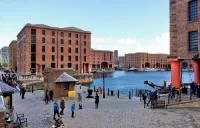
Liverpool is a port city and metropolitan borough located in...

San Francisco is a major commercial financial and cultural hub...

Football encompasses a variety of team sports centered on kicking...
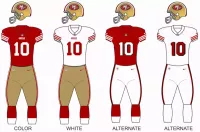
The San Francisco ers are a professional American football team...
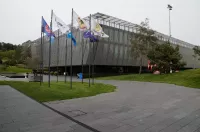
FIFA F d ration Internationale de Football Association is the...
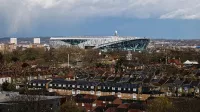
Tottenham is a district in north London part of the...
Trending
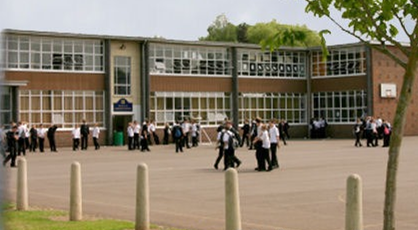
2 months ago Indonesia school collapse: Dozens dead, search continues amidst building flaw concerns.

60 minutes ago Maxxine Dupri, assisted by AJ Lee, dethrones Becky Lynch for Intercontinental Title on Raw!
2 hours ago Mike Evans' Recovery Timeline: Encouraging Update for Buccaneers and Fantasy Managers Alike

2 hours ago Kyle Schwarber sparks free agency buzz: Phillies, Pirates show interest in slugger.
3 hours ago Man Arrested in Blakely After Pointing Gun at Family; Police Respond.

2 days ago Michelle Obama: America 'not ready' for a woman president, cites sexism concerns.
Popular

XXXTentacion born Jahseh Dwayne Ricardo Onfroy was a controversial yet...

Cristiano Ronaldo often nicknamed CR is a Portuguese professional footballer...

William Franklin Graham III commonly known as Franklin Graham is...

Candace Owens is an American conservative political commentator and author...

Bill Clinton the nd U S President - served as...

Michelle Obama is an American attorney author and former First...